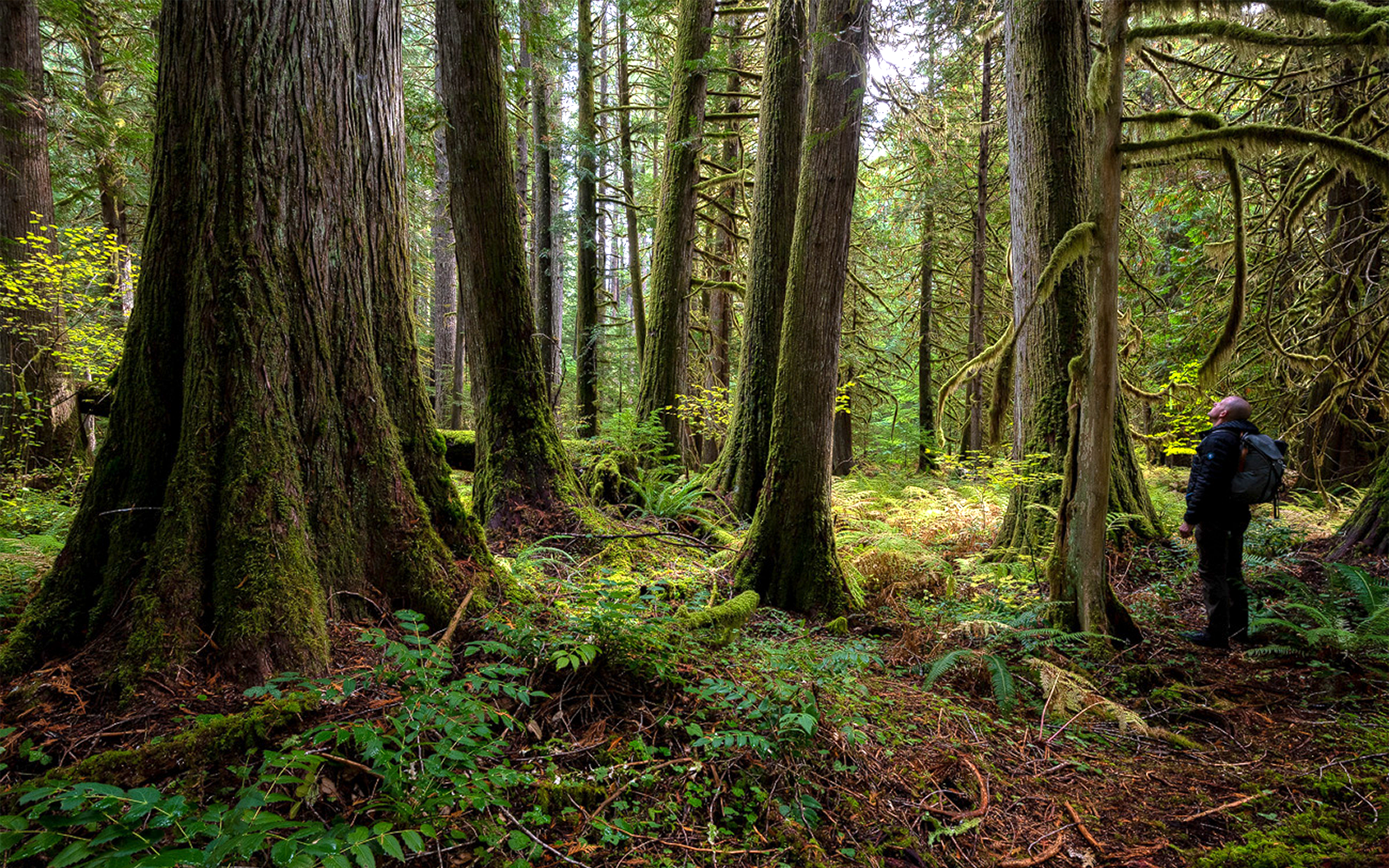FOR IMMEDIATE RELEASE
August 2, 2022
Contacts:
Bethany Cotton, Cascadia Wildlands, 503-327-4923, bethany@cascwild.org
Susan Jane Brown, Western Environmental Law Center, 503-914-1323, brown@westernlaw.org
Doug Heiken, Oregon Wild, 541-344-0675, dh@oregonwild.org
Eugene, OR — Today, old-growth forest and wildlife advocates provided the U.S. Forest Service the means to reconsider the pending Trump-era “Flat Country” timber sale in Oregon’s Willamette National Forest. The vast majority of the proposed logging would be in mature and old-growth forests, with over 1,000 acres of clearcutting, even though President Biden this year ordered his administration to prioritize conserving these forests as a crucial climate protection.
The groups’ “significant new information” letter details new law and policy as well as changed on-the-ground conditions stemming from the 2020 Holiday Farm wildfire nearby. The Forest Service’s 2020 environmental impact statement approving the 5,000-acre timber sale does not consider these important issues as required by the National Environmental Policy Act. With the letter, the groups are asking the agency to perform supplemental environmental review of the new information that arose since 2020.
The timber sale is controversial in part because the Forest Service has not attempted to clearcut older forests in the Pacific Northwest for many years. The sale is opposed by Dr. Jerry Franklin and Dr. Norm Johnson (their story map here), two of the authors of the landmark Northwest Forest Plan; as well as Rep. Peter DeFazio (D-OR). The area was occupied by tree sitters in 2021 and 2022.
“The Flat Country timber sale would harm the climate, destroy thousands of acres of mature and old-growth forests, harm threatened northern spotted owls, and further impair the McKenzie River Watershed that is still reeling from a 2020 megafire driven by climate change,” said Susan Jane Brown, Wildlands and Wildlife Program director at the Western Environmental Law Center. “There is absolutely zero reason for the Biden administration—after committing to conserve mature and old-growth forests earlier this year—to pursue this Trump-era logging project when so much has changed. This is the Forest Service’s last chance to heed this new information before it makes a tragic and avoidable mistake.”
“The Biden administration’s Earth Day executive order is commendable because it at long last acknowledges the importance of safeguarding mature and old-growth forests, but it contains a glaring error in failing to recognize the ongoing threat logging poses to our last remaining mature and old-growth forests,” said Bethany Cotton, conservation director for Cascadia Wildlands. “If the Biden administration is serious about protecting old growth and safeguarding our climate, wildlife habitat, and drinking water sources, it must withdraw this terrible logging project.”
“Anyone who has visited the Flat Country sale can plainly see this is a commercial logging grab,” said Doug Heiken, restoration and conservation coordinator for Oregon Wild. “Many areas slated for destruction are fully functioning mature and old-growth forests—the exact types of systems the Forest Service claims it is trying to restore. To say this logging sale is about forest health, wildlife habitat, or fire mitigation is laughable.”
The significant new law and policy:
In “Tackling the Climate Crisis at Home and Abroad” (executive order 14008), President Biden orders his administration to:
“…organize and deploy the full capacity of its agencies to combat the climate crisis to implement a Government-wide approach that reduces climate pollution in every sector of the economy; increases resilience to the impacts of climate change; protects public health; conserves our lands, waters, and biodiversity…”
In “Strengthening the Nation’s Forests, Communities, and Local Economies” (executive order 14072), President Biden emphasizes the importance of conserving old-growth forests:
“Globally, forests…play an irreplaceable role in reaching net-zero greenhouse gas emissions…America’s forests absorb more than 10 percent of annual United States economy-wide greenhouse gas emissions. Conserving old-growth and mature forests on Federal lands while supporting and advancing climate-smart forestry and sustainable forest products is critical to protecting these and other ecosystem services provided by those forests.”
“My Administration will manage forests on Federal lands, which include many mature and old-growth forests, to promote their continued health and resilience; retain and enhance carbon storage; conserve biodiversity; mitigate the risk of wildfires; enhance climate resilience; enable subsistence and cultural uses; provide outdoor recreational opportunities; and promote sustainable local economic development…”
Finally, Secretary of Agriculture Tom Vilsack issued “Climate Resilience and Carbon Stewardship of America’s National Forests and Grasslands” (secretarial memorandum 1077-004) to meet some of the obligations of the Department of Agriculture imposed by EO 14072. In addition to recognizing the threat posed to national forests from climate change and the value of and role that forests play in combating the climate crisis, the secretary directed the Chief of the Forest Service to “carry out immediate actions to accelerate climate resilience and carbon stewardship.”
The Flat Country timber sale is antithetical to this significant new law and policy because rather than conserve older forests, the timber sale will log 3,115 acres of forest older than 80 years of age.
The significant new circumstances (wildfire):
On Labor Day 2020, several wildfires sparked in western Oregon, driven by high winds and temperatures, low humidity, drought conditions, and climate change. One of these fires, the Holiday Farm Fire, burned more than 173,000 acres or 27% of the McKenzie River Watershed to the west of the proposed Flat Country timber sale. Collectively, the Holiday Farm Fire and other Labor Day 2020 wildfires burned millions of acres of federal public lands and nonfederal lands, causing dramatic changes to forest and vegetation composition. The quality and arrangement of suitable wildlife habitat has changed significantly as a result of the Holiday Farm Fire and the other 2020 Labor Day Fires, requiring a reanalysis of the effects of the Flat Country timber sale.
The Forest Service published the Flat Country final environmental impact statement in June 2020, three months before the onset of the Labor Day fires. Numerous assumptions and analyses in that authorization are no longer valid in light of the extensive change in vegetative conditions as a result of these large fires.

